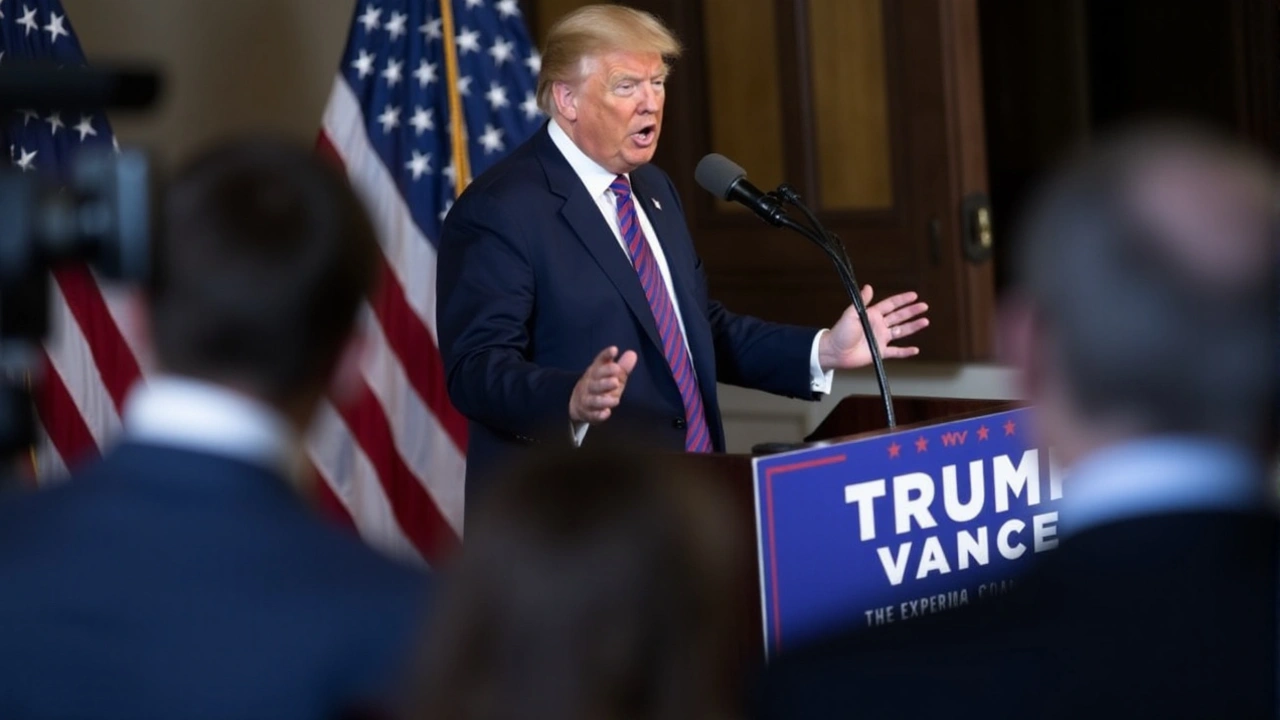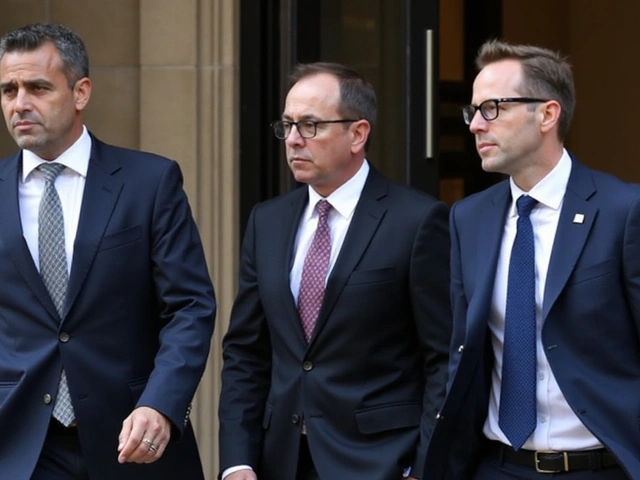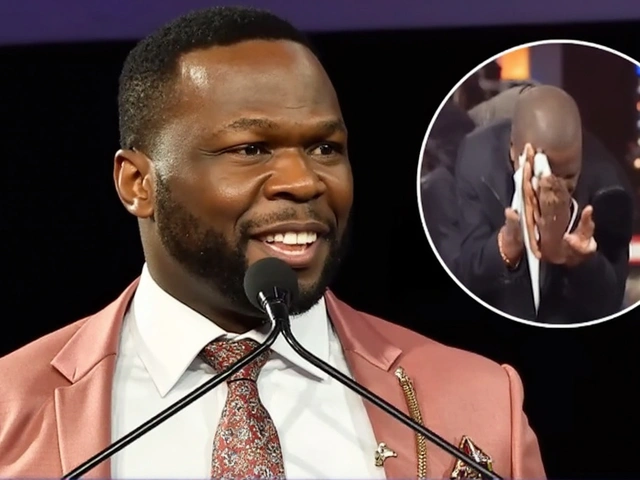JD Vance's 2024 Republican National Convention Speech: A Thorough Fact-Check
Vance's Iraq War Claims and Joe Biden's Stance
During his speech at the 2024 Republican National Convention in Milwaukee, JD Vance made multiple assertions regarding the political landscape, economic policies, and personal anecdotes. One of the notable claims was about Joe Biden's support for the invasion of Iraq, which he portrayed as a disastrous move. Vance stated that Biden was in favor of this invasion while Donald Trump opposed it.
It's important to note that Biden did vote in favor of the 2002 resolution authorizing military action against Iraq. This fact lends partial accuracy to Vance's claim. However, Vance's characterization of Trump as a consistent opponent of the invasion isn't entirely accurate. Trump initially expressed support for the invasion before later becoming a vocal critic. Thus, this statement from Vance falls into the category of Half True.
Job Losses and Trade Policies: A Closer Look
Vance also directed criticism at certain trade policies, particularly the 'liberalization of trade with China' and the North American Free Trade Agreement (NAFTA). He attributed significant job losses in the US manufacturing sector to these policies. While it's true that trade liberalization and agreements like NAFTA have had some impact on the US economy and job market, the picture is more nuanced. Experts note that the overall effect of NAFTA on the economy has been relatively modest.
Some studies do support Vance’s perspective, indicating that certain regions and industries in the US faced job losses due to these trade deals. However, other factors, such as automation and broader economic trends, also played significant roles. Vance’s blanket blame on NAFTA and trade with China is somewhat exaggerated, though not entirely baseless, thus it's rated as Half True.
Personal Stories: Poverty and Domestic Violence
In his speech, Vance shared personal stories, including his family's experience with domestic violence and his cemetery plot in Eastern Kentucky, described as one of the ten poorest counties in the US. Such anecdotes aimed to highlight broader social and economic issues. Regarding the economic condition of Eastern Kentucky, it's indeed one of the poorest regions in Kentucky and the nation. Yet, it doesn’t rank in the bottom ten poorest counties nationwide. This statement, though emotionally compelling, is also rated as Half True.
Vance's Stance on Abortion and Social Issues
Vance's speech also touched on his stance on abortion, aligning with traditional conservative views. He shared his belief in protecting the unborn, reflecting the sentiments of many in his political base. His statements on abortion didn't present factual inaccuracies but rather conveyed his personal and political stance, which remains a deeply divisive issue across the country.
The Complexity of Political Rhetoric
Politicians often use broad strokes and compelling personal anecdotes to connect with their audience, and JD Vance's speech at the RNC was no exception. Fact-checking these statements reveals a mix of partial truths and nuanced realities. Whether discussing foreign policy, economic trade deals, or personal experiences, one's perspective can shape the narrative significantly.
Understanding the full context and the underlying complexities is crucial for voters as they navigate the often murky waters of political discourse. Vance’s claims, while partly accurate, demonstrate the importance of thorough fact-checking and critical thinking in distinguishing rhetoric from reality.
Overall, JD Vance's speech at the 2024 Republican National Convention was a strategic blend of personal anecdotes and political positioning. By fact-checking these claims, we gain a deeper insight into the intricate layers of political narratives and the importance of informed and critical engagement in the democratic process.









Dean Obijekwu
July 18, 2024 AT 22:03Vance nailed the fact that Biden voted for the 2002 Iraq resolution, which most folks overlook when they try to paint him as a pacifist on foreign wars.
That vote was part of a broader bipartisan consensus at the time, not a rogue move.
What’s critical is that Trump's record on the Iraq invasion was far from consistent – he initially backed it before flipping.
Understanding those nuances helps cut through the political soundbite.
In short, Vance’s point about the vote is accurate, but the broader narrative needs context.
finlay moss
July 20, 2024 AT 20:26okay so here’s the *real* deal – Vance’s claim on NAFTA is kinda half‑baked.
NAFTA actually added about 200k jobs in the U.S. over its tenure, not just ripped them away.
yeah i know you’ve heard the “job‑killing” chant, but the data shows a net gain in GDP and consumer surplus.
the real culprits are automation and shifting demand, not some magical trade wizardry.
also, the whole China trade liberalization thing is a massive oversimplification – it’s a multi‑decade process with many variables.
Carl Gough
July 26, 2024 AT 15:20Let’s break this down with a dash of color and a splash of hard facts, because Vance’s rhetoric feels like a paint‑by‑numbers canvas that misses the texture of reality.
First, the Iraq vote: yes, Biden signed the 2002 resolution, but it was a bipartisan act that had wide congressional support, and the geopolitical calculus was far more tangled than a simple “yes” or “no.”
Second, Trump’s stance wasn’t a static line – he flirted with support before turning into a vocal critic, so calling him a steadfast opponent is a narrative shortcut that erases the nuance.
Third, the trade claims: NAFTA’s impact on the U.S. labor market is modest, with studies showing a net job loss of roughly 100,000 jobs over decades, a figure dwarfed by automation’s relentless march.
The China‑related trade liberalization story is similarly complex; while some manufacturing sectors felt the pinch, consumer prices dropped and export markets expanded, creating gains that are often invisible in headline numbers.
Fourth, the Eastern Kentucky anecdote: the region is undeniably impoverished, but it doesn’t sit in the bottom ten counties nationally; that claim stretches the truth for emotive effect.
Fifth, on abortion, Vance is echoing a core conservative principle, which isn’t a factual claim but a policy stance, and it’s important to separate belief from verifiable data.
Sixth, the personal stories of domestic violence and a family cemetery plot add a human face to policy debates, yet they shouldn’t be weaponized to mask the broader policy analysis required for voters.
Seventh, the political theater at the RNC is designed to simplify issues into soundbites, but the electorate deserves the granular, layered truth that policy analyses provide.
Eighth, the media landscape amplifies half‑truths, making it vital for fact‑checkers to highlight where statements sit on the spectrum from accurate to exaggerated.
Ninth, the economic narrative that blames global trade alone for job loss ignores the dynamic nature of a modern economy that constantly reshapes labor demand.
Tenth, the geopolitical narrative surrounding Iraq is now a case study in how the execution of foreign policy can diverge wildly from its initial legislative intent.
Eleventh, voter perception is heavily swayed by these distilled statements, underscoring the responsibility of both politicians and fact‑checkers to present a balanced picture.
Twelfth, the interplay of domestic policy, trade, and foreign affairs creates an intricate tapestry that no single speech can fully capture.
Thirteenth, Vance’s half‑true claims, while not wholly false, reflect a strategic selection of facts to serve a political purpose.
Fourteenth, the best way forward for voters is to dissect these statements, cross‑reference with data, and avoid the allure of simplistic narratives.
Fifteenth, in the end, political rhetoric thrives on partial truths, but a well‑informed electorate thrives on the full truth.
Rebecca Hayes
August 1, 2024 AT 10:13Building on Dean’s point about the Iraq vote, it’s essential to recognize that congressional authorizations often reflect a collective security strategy rather than individual ideology.
From a policy analysis standpoint, the 2002 resolution was framed as a pre‑emptive measure, and the subsequent outcomes highlight the risks of such broad authorizations.
When we dissect trade impacts, the data suggests a multifaceted picture where productivity gains offset certain sectoral displacements.
Thus, the narrative should shift from blame to a balanced assessment of both benefits and costs.
Jason Underhill
August 7, 2024 AT 05:06yeah sure, finlay’s got the facts straight but let’s not ignore that the whole "trade kills jobs" line has been weaponized for years 😒
the reality is automation, not NAFTA, is the real job‑stealer, and that’s something most pundits love to dodge.
still, it’s nice to see a bit of nuance in the conversation…maybe?
Kirsten Wilson
August 13, 2024 AT 00:00i think we need to look deeper into the human stories behind these stats they can be more than numbers but also less than a simple narrative
the pinprick of poverty in e.kentucky is real but not #1 cause you can read the data for yourself its not a fancy soundbites
Michelle Roque
October 2, 2024 AT 22:13Nice breakdown, love the detail.